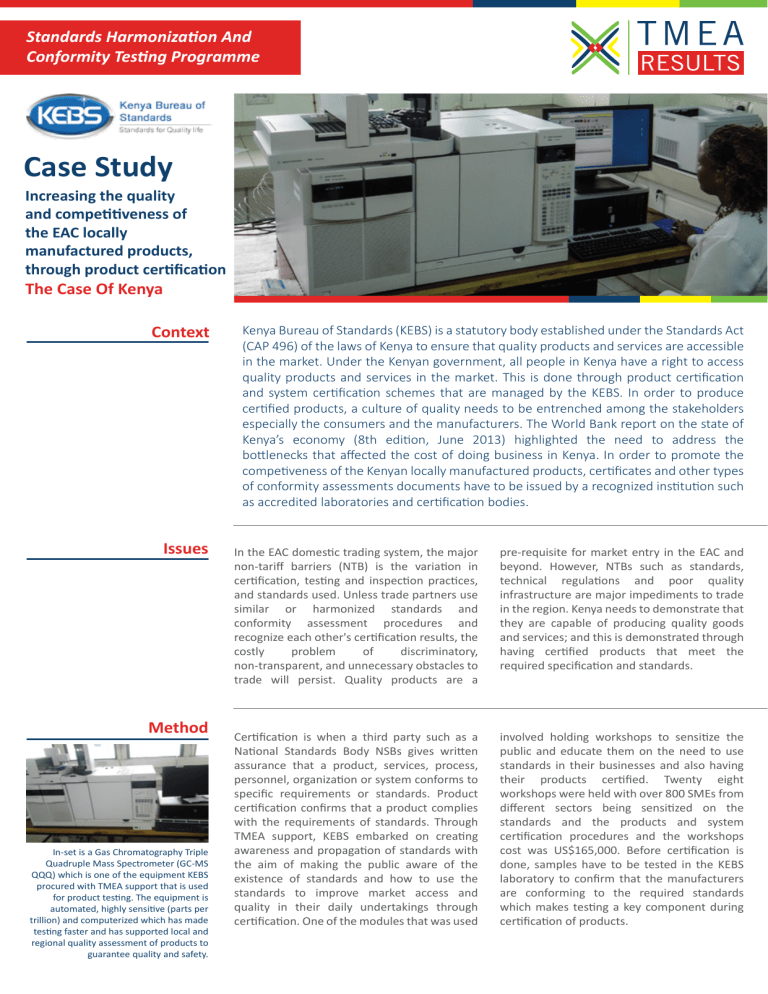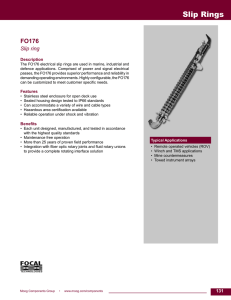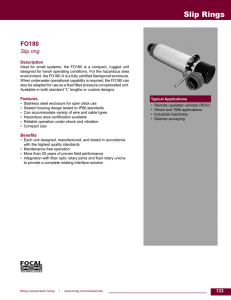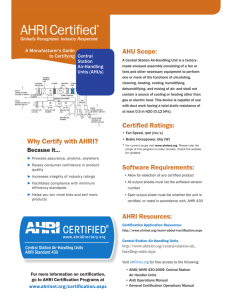TMEA Standards Case Study Case of Kenya

Standards Harmonization And
Conformity Testing Programme
Case Study
Increasing the quality and competitiveness of the EAC locally manufactured products, through product certification
The Case Of Kenya
Context
Kenya Bureau of Standards (KEBS) is a statutory body established under the Standards Act
(CAP 496) of the laws of Kenya to ensure that quality products and services are accessible in the market. Under the Kenyan government, all people in Kenya have a right to access quality products and services in the market. This is done through product certification and system certification schemes that are managed by the KEBS. In order to produce certified products, a culture of quality needs to be entrenched among the stakeholders especially the consumers and the manufacturers. The World Bank report on the state of
Kenya’s economy (8th edition, June 2013) highlighted the need to address the bottlenecks that affected the cost of doing business in Kenya. In order to promote the competiveness of the Kenyan locally manufactured products, certificates and other types of conformity assessments documents have to be issued by a recognized institution such as accredited laboratories and certification bodies.
Issues
In the EAC domestic trading system, the major non-tariff barriers (NTB) is the variation in certification, testing and inspection practices, and standards used. Unless trade partners use similar or harmonized standards and conformity assessment procedures and recognize each other's certification results, the costly problem of discriminatory, non-transparent, and unnecessary obstacles to trade will persist. Quality products are a pre-requisite for market entry in the EAC and beyond. However, NTBs such as standards, technical regulations and poor quality infrastructure are major impediments to trade in the region. Kenya needs to demonstrate that they are capable of producing quality goods and services; and this is demonstrated through having certified products that meet the required specification and standards.
Method
In-set is a Gas Chromatography Triple
Quadruple Mass Spectrometer (GC-MS
QQQ) which is one of the equipment KEBS procured with TMEA support that is used for product testing. The equipment is automated, highly sensitive (parts per trillion) and computerized which has made testing faster and has supported local and regional quality assessment of products to guarantee quality and safety.
Certification is when a third party such as a
National Standards Body NSBs gives written assurance that a product, services, process, personnel, organization or system conforms to specific requirements or standards. Product certification confirms that a product complies with the requirements of standards. Through
TMEA support, KEBS embarked on creating awareness and propagation of standards with the aim of making the public aware of the existence of standards and how to use the standards to improve market access and quality in their daily undertakings through certification. One of the modules that was used involved holding workshops to sensitize the public and educate them on the need to use standards in their businesses and also having their products certified. Twenty eight workshops were held with over 800 SMEs from different sectors being sensitized on the standards and the products and system certification procedures and the workshops cost was US$165,000. Before certification is done, samples have to be tested in the KEBS laboratory to confirm that the manufacturers are conforming to the required standards which makes testing a key component during certification of products.
Standards Harmonization And
Conformity Testing Programme
Results
85% 93%
Testing cost reduced from US$ 800 to US$120
Testing time reduced from 14 days to 1 day.
Due to the TMEA interventions on market access requirements and certification of locally manufactured products by SMEs, Kenya was able to increase the number of SMEs products certified and also improved their access to formal markets at both domestic and international levels. Significant contribution was made to increase product certification from 619 certification permits in the year 2010 to 1,820 valid certification permits in 2014. As a result of mutual recognition of certification activities in the region, certification of the
Kenyan products has made them gain stakeholder confidence and acceptance in the region thus promoting cross-border trade and business competitiveness in the region. The acceptance of conformity assessment procedures based on EAS and international standards has significantly minimized the cost and the time of complying with multiple standards through re-testing thus eliminating technical barriers to trade which has reduced the time and cost of doing business.
Impact
TMEA support to KEBS has contributed to increased number of certified competitive products that are accessing formal markets with better prices in the region. Through the support, KEBS standardization work and conformity assessment initiatives such as inspection, market surveillance and product certification have been greatly enhanced as a result of the expanded scope of testing, better sensitivities and high sample throughput.
However, for KEBS to improve and maintain these achievements, they need more testing laboratory equipment, trained and competent staff to fill the existing gaps
Lessons Learnt
The lessons learnt for the case of Kenya is that manufacturers can use certification of their products to create trust, consumer confidence, market advantage and access because certification demonstrates that their products fulfill the requirements established in the standards and regulations.
Who benefits
The direct beneficiaries of product certification are the private sector specifically the SMEs who are aware of the importance of standards and certification in accessing domestic and export markets. Certification has also benefited the consumers because they can access safe and quality products on the market. The government is able to improve the national quality system which makes their products more competitive and in turn they receive more revenue.
Long-term effects
Certification in Kenya enables the governments to enforce the regulations for which they are responsible in protecting the public health and safety. When trading partners adhere to similar or equivalent conformity assessment procedures and requirements, or recognize each other's conformity assessment results, then the costly problem of discriminatory, non-transparent and unnecessary obstacles to trade will be eliminated which enhances trade.
KEBS also continuously monitors certified products through regular factory and market surveillance visits, to evaluate the manufacturer and also draw samples for testing to determine compliance to the relevant standard or approved specification.
KEBS has benefited from the programme support because the testing has reduced from 14 days to 1 day. This has significantly reduced on the waiting time for the test results to be used for the product certification process. In-set is one of the analysts,
Mr. Tom Oduor-Okumu in the KEBS laboratory using one of the equipment procured with support from TMEA.




